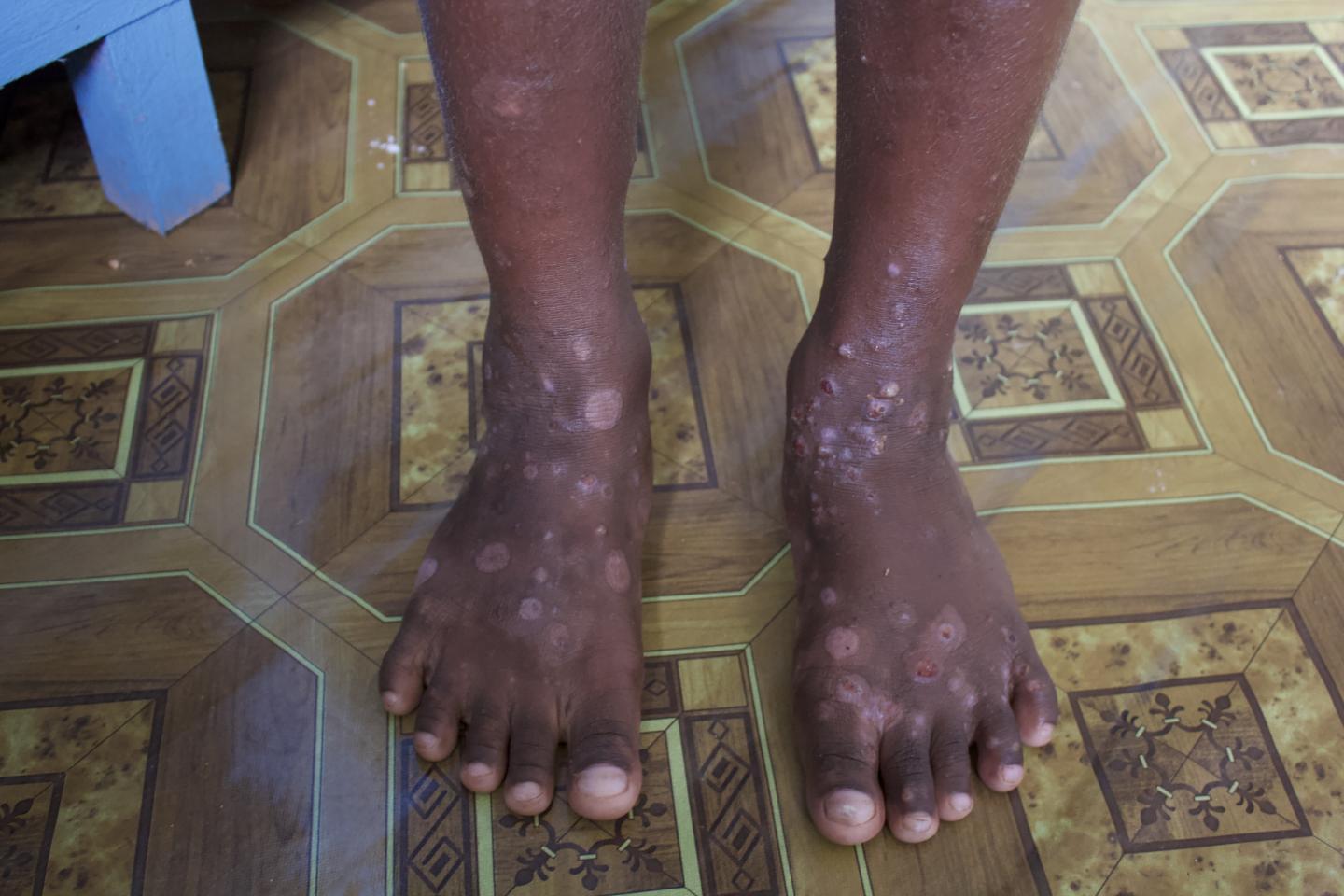Update of the world’s first comparative trial of mass drug administration against scabies

Credit: MCRI
Results of a two-year update of the world’s first comparative trial of mass drug administration against scabies, show that the infection rate is still significantly down. The latest findings are published today in the New England Journal of Medicine.
In 2012, the Murdoch Children’s Research Institute, the Kirby Institute and the Fiji Ministry for Health, treated almost everyone on a remote Fijian island (716 people) with the oral anti-parasitic drug ivermectin. Scabies, caused by tiny mites, is a debilitating skin condition leading to severe itching. If untreated it can lead to serious bacterial infections, not only of the skin but internal organ systems including the kidney and heart.
The researchers had previously published their findings at one-year follow up. In the New England Journal of Medicine, the researchers today (June 27) report that 24 months after the treatment, the infection rate was still extremely low, at 3.6 per cent – down 89 per cent on the original figure.
“Mass drug administration has been used to successfully control other important parasitic and bacterial diseases around the world – we have shown it can be used for scabies too, and that its effect is long-lasting,” said lead author Dr Lucia Romani from the Kirby Institute at UNSW Sydney.
“The principle of mass drug administration is that regardless of whether or not you know you have scabies, everyone in the community is encouraged to take the medication to kill the mites at the same time and stop them from spreading from person to person.”
Professor Andrew Street from the Murdoch Children’s Research Institute said the medication, ivermectin, is used against a range of human parasites.
“Ivermectin is recommended by the World Health Organization for the control of common parasitic diseases such as river blindness – over one billion doses have been given and it is known to be very safe,” Professor Steer said. “Its creators received the 2015 Noble Prize for Medicine.”
Dr Mike Kama, focal person for scabies control in the Fiji Ministry of Health, said in the original trial, the researchers assigned three island communities to different interventions for scabies control: standard care involving treatment of affected individuals and their families using permethrin cream, mass administration of permethrin cream, and mass administration of ivermectin tablets.
“After one year the prevalence of scabies declined in all groups, but by far the most dramatic reduction was in the ivermectin group with a fall in prevalence of 94 per cent,” Dr Kama said. “The follow-up study at 24 months shows that this reduction remains sustained over a longer period.”
Scabies is widespread in many tropical settings, especially in the Pacific region. The mites thrive in crowded conditions, whether through people living close to each other, or in settings such as schools, or other institutions.
###
- Publication: New England Journal of Medicine
- The research was funded by the research was funded by a grant (1032310) from the Australian National Health and Medical Research Council. The ivermectin that was used in the study was provided by Merck Sharp & Dohme, Australia. The Fiji Ministry of Health and Medical Services provided paid personnel.
Available for interview:
- Prof Andrew Steer, MCRI
- Dr Lucia Romani, Kirby Institute, UNSW
Media Contacts:
Christine Tondorf
MCRI communications specialist
+613 9936 6197 / 0413 307 092
Bridie Byrne
MCRI communications advisor
+613 9936 6211 / 0403 664 416
Lucienne Bamford
Kirby Institute Media and Communications Manager
t: +61 2 9385 0550 | m: +614 32 894 029
Media Contact
Christine Tondorf
[email protected]




